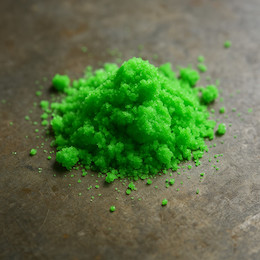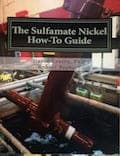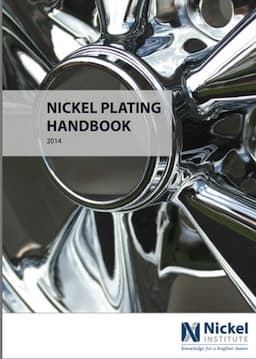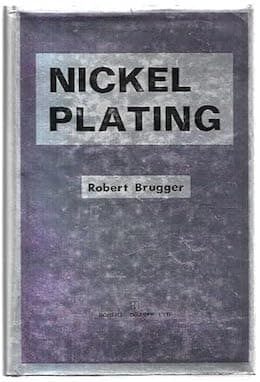
-----
Chloride limits for nickel sulfamate bath?
Q. With reference to the Boeing Spec BAC5746 Rev: (M) for nickel sulphamate plating
Do the Chloride limits mean:-Chloride
Nickel Chloride anhydrous
Nickel Chloride Hexahydrate
As only the hexahydrate is commercially available why do they make it confusing? Barry Gay
- Gloucester [U.K.]
December 3, 2024
A. What they mean is total concentration of chloride ions in the bath. Difference between anhydrous nickel chloride and nickel chloride hexahydrate is that per mass, first one has ~`55% of chloride and 45% of nickel, the second one has 30% chloride and 25% nickel, the rest is water. So take it into consideration when calculating how your bath composition will change after addition of any of those. I think anhydrous nickel chloride is available for purchase, but only in small quantities and for high price -- I assume for laboratory scale use.
Diana SakovichChemical technologist - Poznan, Poland
February 5, 2025
⇩ Related postings, oldest first ⇩
Q. We are doing nickel plating in nickel sulfamate bath.
Last time we make up solution and we have increased concentration of chloride 12,75 g/l (operating limit 6-9 g/l) and nickel concentration is 75 g/l (operating limit 75-90 g/l.
Plate we got on test pieces is very good considering the color; no pitting and adhesion. Does anyone know does the increased chloride in this case interfere with plate quality, or to interfere with bath work? We did not notice any problem but I just want to check and exchange experience.
Thanks in advance.
plating engineer - Belgrade, Serbia
2007
|
|
A. Chlorides increase the tensile stress in the deposit, therefore you want to use the lowest concentration of chlorides that will still corrode your anodes at the current density that you use. If you are at 20 amps per square foot (2.16 amps per square decimeter) and using INCO's S-Rounds, then you only need 0.5 oz/gal(3.75 gm/Liter) of chloride. But if you are using electrolytic nickel or Rolled Depolarized then it will take 6 or 8 oz/gal. If the metal dissolution from the anodes does not keep up with the plate-out rate, then the pH will go down and the deposit will increase in tensile stress,  Robert H Probert Robert H Probert Technical Services Garner, North Carolina  A. That concentration is just a little high. Chloride ions promote anode dissolution but also increase stress. If you are not doing electroforming work or your plate is relatively thin, it may be OK. As a matter of fact, adhesion to some difficult to activate alloys might improve. You will have to monitor your Ni++ concentration closer and take the anodes out of the tank when idle. Guillermo MarrufoMonterrey, NL, Mexico A. The increased chloride concentration will have an influence on your internal stress of the nickel deposition. It will move from compressive to tensile stress, how much will depend on your other bath and working conditions. - Lucerne, Switzerland |
A. The presence of chloride ions in a nickel sulphamate bath is not required as long as the anodes are either inert (not recommended) or are sulfur nickel (S-nickel). The presence of chloride is primarily to promote anodic dissolution and hence anodic polarisation. This stops the anode from passivating and reduces the rate at which nickel oxides and hydroxides are created at the anode, both of which can adversely affect the quality of the nickel deposit as well as knock the bath's chemical balance out.
In theory, nickel sulphamate does not need chloride, but most users, even electroformers, use some chloride; I have known as much as 10 g/l of nickel chloride being used without too many problems. The presence of chloride will switch the stress from compressive to tensile, but in many cases this can be accommodated by increasing the amount of added stress reliever. An alternative to chloride is bromide, which does not seem to affect the stress but does promote some anodic polarisation. Nickel bromide is, however, much more expensive than the corresponding chloride.

Trevor Crichton
R&D practical scientist
Chesham, Bucks, UK
Q, A, or Comment on THIS thread -or- Start a NEW Thread




